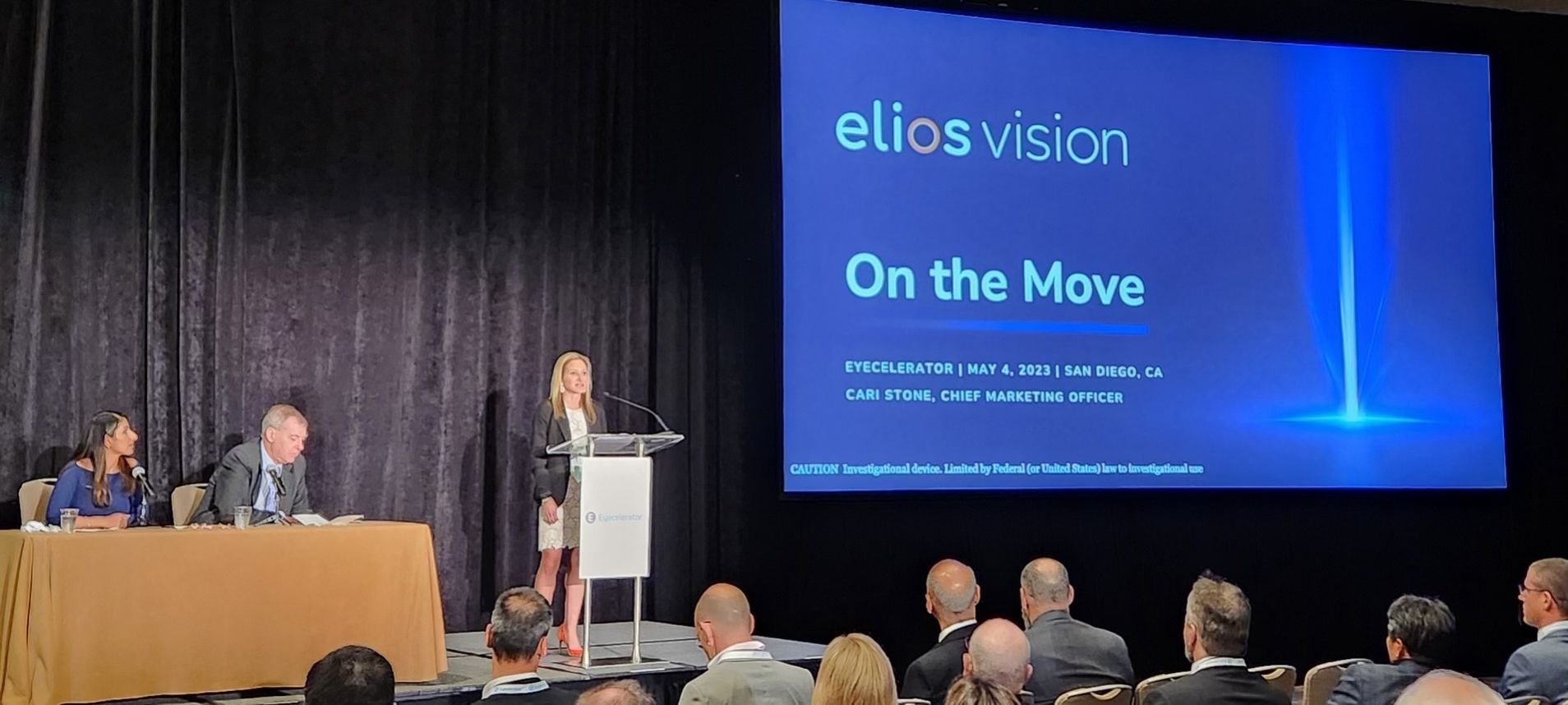Reflections from San Diego - ASCRS 2023 Round-Up
While we were unable to attend the 2023 ASCRS Annual Meeting in person, several ExSight portfolio companies had a notable presence. We’d like to share some key highlights here.
36 Month Data Demonstrates Long Term Safety and Efficacy of LensGen’s Juvene Modular IOL
Sam Garg, MD, presented a paper on the 36-month outcomes for the Juvene modular intraocular lens at the 2023 ASCRS annual meeting in San Diego. Previous studies have shown positive results at 12 months and 24 months. The Juvene modular IOL, developed by LensGen, consists of a base lens that fills the capsular bag and a fluid-filled optic that changes shape to provide accommodative amplitude. Here's a summary of the key points presented by Dr. Garg:
Monocularly implanted patients showed excellent distance, intermediate, and near vision at 36 months.
Bilateral patients achieved excellent visual outcomes with 20/20 distance, 20/25 intermediate, and functional near vision at J3 or better.
The lens demonstrated consistency in range of vision, quality of vision, and accommodation amplitude over the three-year period. The range of vision, the quality of vision, and the amplitude of accommodation were consistent from 1 to 2 to 3 years. We're seeing that this lens is maintaining its effect over time.
Endothelial cell health was assessed, and the endothelial cell loss was comparable to standard cataract surgery, indicating favorable long-term safety.
Overall, the Juvene modular IOL will be a promising option for patients seeking improved vision quality, range, and accommodation, while minimizing potential complications such as dysphotopsia and loss of contrast. Click here to read the article and watch the video.
Trefoil Therapeutics Announces Positive Phase 2 Results
Trefoil Therapeutics announced at ASCRS positive results of their Phase 2 STORM study on TTHX1114. This investigational drug, an engineered variant of Fibroblast Growth Factor-1 (FGF1), showed promising outcomes in improving visual recovery and corneal deturgescence after Descemet stripping only (DSO) surgery. The study focused on patients with Fuchs endothelial corneal dystrophy (FECD).
The company reported that TTHX1114 demonstrated a dose-responsive improvement in visual recovery and corneal deturgescence. A separate analysis using the V-Fuchs Questionnaire (V-FUCHS) assessed visual morbidity in FECD patients prior to surgery. The results indicated moderate vision interference in daily activities, difficulty in seeing fine details, and issues with glare and halos, particularly at night.
TTHX1114 is being developed as an intracameral injection to protect and regenerate corneal endothelial cells lost due to diseases like FECD. Trefoil Therapeutics is also working on a topical formulation of TTHX1114 to stimulate corneal epithelial cell growth, potentially reducing complications associated with ulcerative corneal conditions.
The Phase 2 STORM study results showed that TTHX1114 improved best-corrected visual acuity (BCVA) and central corneal thickness (CCT) after DSO surgery. Smaller descemetorhexis (surgical removal of Descemet membrane) correlated with faster recovery, while comorbid diabetes appeared to delay recovery. The study did not find significant differences in recovery between subjects undergoing combination cataract surgery and those undergoing DSO alone.
Trefoil Therapeutics emphasized the potential of TTHX1114 to leverage the regenerative properties of corneal endothelial and epithelial cells for vision restoration. The company's research demonstrates the safety and efficacy of TTHX1114 in patients with compromised endothelium undergoing ocular surgery, addressing an unmet medical need in protecting the corneal endothelium of individuals with Fuchs dystrophy.
The findings from the V-FUCHS questionnaire highlight the importance of considering patients' perspectives on visual function and quality of life when discussing treatment options for corneal diseases. Trefoil Therapeutics aims to provide hope to patients at risk of corneal decompensation, enabling them to maintain good vision and potentially avoid the need for corneal transplantation.
Click here to read the full article.
Elios Presents at Eyecelerator
Elios Vision was represented by Prof. Rosa Braga-Mele, Prof. Marc Toeteberg-Harms, M.D., F.E.B.O. and Cari Stone during the American Society of Cataract and Refractive Surgery (ASCRS) in San Diego this weekend.






